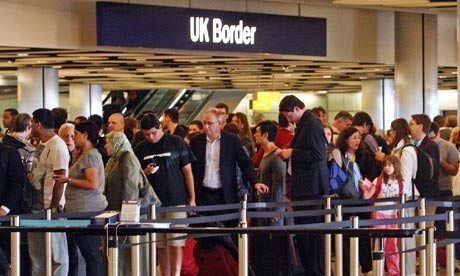Immigration Will Help Clear Deficit, Say Treasury's Economic Advisers

Cutting the number of foreign workers in Britain would make it more difficult for the government to clear its deficit, according to a fiscal watchdog for the UK.
The Office for Budget Responsibility, which was set up in 2010 to provide "independent and authoritative analysis" of the UK's public finances, told MPs that immigration is economically beneficial.
Robert Chote, head of the OBR, said migrants were generally "of working age" and likely to be paying taxes. He also added that they were "less likely to have relatively large sums of money spent on them for education, for long-term care, for healthcare, for pension expenditure".
Speaking to the Treasury Select Committee, he maintained that a continuance of migrant labour was necessary to fund public services in the UK. He also added that immigration tended to "produce a more beneficial picture" for government finances.
Chote's assessment is an established belief of the OBR. In 2013, the watdchdog published a report outlining the need for foreign workers to fund the cost of the NHS, social care and pensions.
David Cameron recently pledged to slash net immigration to "tens of thousands." However, the national debt will reach around 99% of the entire economy in fifty years time if immigration runs at 140,000 per year.
Chote's comments come amid the heated discussion of immigration in the UK, after border controls were lifted to Romanian and Bulgarian migrants at the beginning of January.
According to recent comments from Ion Jinga, Romania's British ambassador, only two dozen immigrants have arrived in the UK since the change.
The figures are approximated on similar numbers from the Netherlands, which also lifted border restrictions in January.
The figures suggest the fears over mass immigration from Romania and Bulgaria are unfounded, amidst arguments that border controls should be tightened, regardless of EU rules.
© Copyright IBTimes 2025. All rights reserved.






















